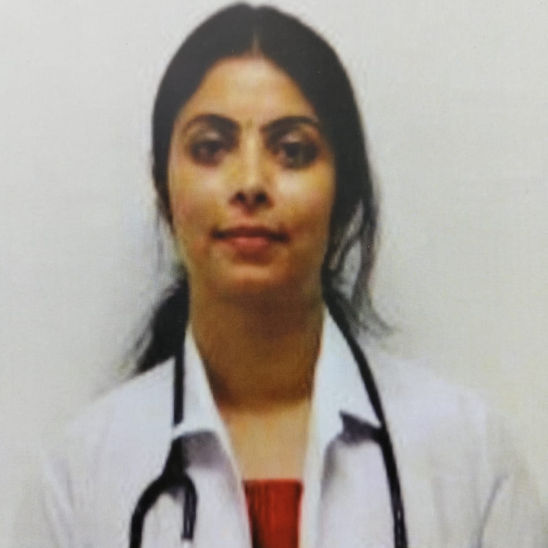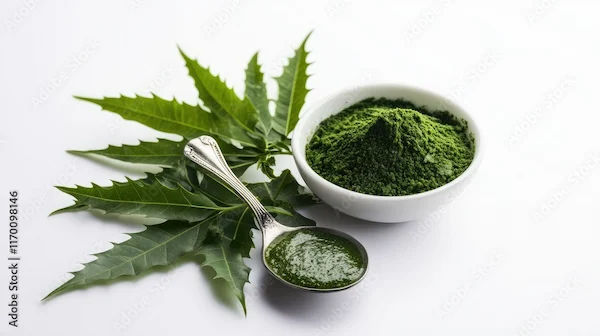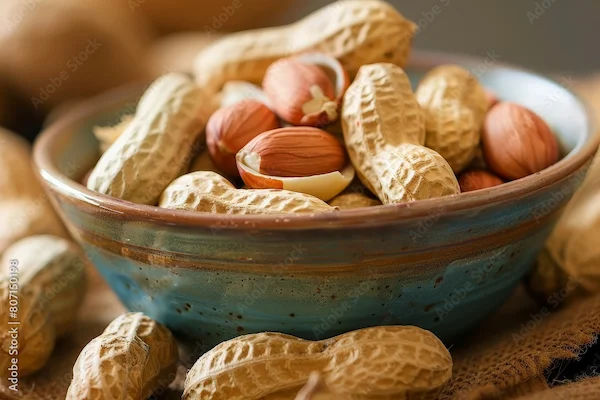How to Reduce High Blood Pressure: A Simple Guide
Learn effective strategies to reduce high blood pressure. Discover lifestyle changes, diet tips, and medical options for better heart health.

Written by Dr.Sonia Bhatt
Last updated on 3rd Jul, 2025

High blood pressure (hypertension) affects millions of people worldwide. If not managed properly, it can lead to serious health problems like heart disease, stroke, and kidney damage. The good news? You can control or even reverse high blood pressure with lifestyle changes, medication, and regular monitoring.
What is High Blood Pressure?
Blood pressure is the pressure of blood on the walls of your blood vessels. It's measured in two numbers: systolic (top number) and diastolic (bottom number). A normal reading is around 120/80 mmHg. Anything over 140/90 mmHg is considered high blood pressure. When the pressure in your arteries is too high, it can damage them and your heart, leading to serious health issues.
Tips to Lower Blood Pressure
1. Maintain a Healthy Weight
Excess weight increases the risk of high blood pressure. Losing weight can help reduce the strain on your heart.
Actionable advice:
Eat a balanced diet with high proportion of fruits, vegetables, whole grains, lean proteins, and healthy fats.
Exercise regularly (walking, jogging, swimming) to help you lose weight and improve heart health.
Seek advice from a dietitian for personalized meal plans and weight-loss strategies.
2. Exercise Regularly
Regular exercise strengthens your heart, helping it pump blood more efficiently, which lowers blood pressure.
Actionable advice:
Aim for 30 minutes of moderate exercise most days (brisk walking, cycling).
Mix it up with aerobic exercises (walking, swimming) and strength training (weight lifting).
Increase intensity gradually as your fitness improves.
3. Adopt a Heart-Healthy Diet
Eating the right foods can help control blood pressure by improving heart health and circulation. The DASH diet is particularly effective.
Actionable advice
Eat potassium-rich foods like bananas, oranges, spinach, and potatoes.
Reduce sodium by avoiding processed and packaged foods. Aim for less than 2,300 mg of sodium daily (1,500 mg if at higher risk).
Include whole grains, lean proteins (chicken, fish, legumes), and healthy fats (olive oil, nuts, avocados).
4. Limit Alcohol and Caffeine
Excessive consumption of alcohol can raise blood pressure and interfere with medications. Caffeine can also temporarily increase blood pressure.
Actionable advice
Limit alcohol to certain limit by consulting your healthcare provider.
Cut back on caffeine or switch to lower-caffeine options like herbal teas.
5. Reduce Stress
Chronic stress releases hormones that cause blood vessels to constrict, raising blood pressure. Managing stress is crucial for long-term control.
Actionable advice
Do yoga and meditation with techniques like deep breathing, or muscle relaxation.
Ensure enough sleep (7-9 hours per night), as poor sleep can worsen blood pressure.
6. Stop Smoking
Smoking damages blood vessels, raising blood pressure and increasing heart disease risk.
Actionable advice
Seek support to quit smoking. Consider counselling, nicotine replacement therapy, or prescription medications.
Join a cessation group or use a quit-smoking app for motivation.
7. Monitor Your Blood Pressure Regularly
Regular monitoring helps track progress and adjust your lifestyle as needed.
Actionable advice
Invest in a home monitor and take readings at the same time each day, preferably in the morning before eating or drinking.
Record readings and share them with your healthcare provider.
Attend check-ups regularly to discuss any changes in your health.
Medications and Hypertension
While lifestyle changes are important for managing blood pressure, some individuals may also require medication to control it effectively. Medications work by dilating blood vessels, reducing heart rate, or decreasing blood volume, thereby lowering blood pressure.
Common Medications:
1.Diuretics:
Mechanism: Diuretics help the kidneys remove excess sodium and water from the body, reducing the volume of blood that needs to pass through the blood vessels, which in turn lowers blood pressure.
Types: Thiazide diuretics (e.g., hydrochlorothiazide), loop diuretics (e.g., furosemide), and potassium-sparing diuretics (e.g., spironolactone).
Usage: Often prescribed as a first-line treatment for hypertension.
2.ACE Inhibitors:
Mechanism: ACE inhibitors (Angiotensin-Converting Enzyme inhibitors) relax blood vessels by blocking the enzyme that produces angiotensin II, a substance that narrows blood vessels.
Common ACE Inhibitors: Enalapril, lisinopril, and ramipril.
Usage: Particularly beneficial for individuals with chronic kidney disease or heart failure.
3.Beta-Blockers:
Mechanism: Beta-blockers reduce blood pressure by blocking the effects of adrenaline, which reduces heart rate and the force of heart contractions.
Common Beta-Blockers: Atenolol, metoprolol, and propranolol.
Usage: Often used in combination with other antihypertensive medications.
4.Calcium Channel Blockers:
Mechanism: Calcium channel blockers relax blood vessels and reduce the heart's workload by preventing calcium from entering the cells of the heart and blood vessel walls.
Common Calcium Channel Blockers: Amlodipine, diltiazem, and verapamil.
Usage: Effective for lowering blood pressure and also for managing angina (chest pain).
5.Angiotensin II Receptor Blockers (ARBs):
Mechanism: ARBs block the action of angiotensin II on its receptors, leading to the relaxation of blood vessels.
Common ARBs: Losartan, valsartan, and candesartan.
Usage: Often prescribed for individuals who cannot tolerate ACE inhibitors.
6.Alpha-Blockers:
Mechanism: Alpha-blockers reduce blood pressure by preventing the hormone norepinephrine from tightening the muscles in the walls of smaller arteries and veins.
Common Alpha-Blockers: Doxazosin, prazosin, and terazosin.
Usage: Sometimes used to treat high blood pressure and benign prostatic hyperplasia (BPH).
7.Central-Acting Agents:
Mechanism: These medications work on the central nervous system to lower blood pressure by decreasing the signals that narrow blood vessels.
Common Central-Acting Agents: Clonidine, methyldopa, and guanfacine.
Usage: Often reserved for patients with difficult-to-treat high blood pressure.
Taking medicines as prescribed by your doctor can help you manage hypertension effectively and reduce the risk of severe health complications. It's important to work closely with your healthcare provider and stay committed to your treatment plan.
Potential Complications of Uncontrolled Hypertension
Uncontrolled high blood pressure can lead to severe complications like blockage of arteries, heart attack, heart failure due to weaken hearts, brain stroke due to blood clots or ruptured vessels in the brain, kidney damage, vision problems or blindness, dementia or mental impairment.
Long-term Strategies to Prevent High Blood Pressure
To keep your blood pressure in check and prevent hypertension over the long haul, you'll need regular check-ups, support from your doctor, and some lifestyle changes. Adopting these strategies can help you lower the risk of hypertension and its complications.
Regular Medical Check-ups
Regular visits to the doctor are essential for catching high blood pressure early and managing it effectively. Your doctor can assess your heart health, suggest treatments, and guide you in preventing hypertension.
Lifestyle Changes
Making lasting lifestyle changes is crucial for controlling blood pressure long term. Incorporate regular exercise, a healthy diet, stress management, and quit smoking into your daily routine.
Conclusion
Lowering high blood pressure is an ongoing journey that involves making long-term lifestyle changes, taking medication when necessary, and monitoring your progress. By maintaining a healthy weight, exercising regularly, eating a balanced diet, managing stress, quitting smoking, and sticking to your prescribed medications, you can significantly improve your heart health. Working closely with your healthcare provider and committing to a healthy lifestyle will help you manage hypertension and reduce the risk of severe health issues. Start taking action today to prioritize your heart health and look forward to a brighter, healthier future
Consult Top General Physicians
Consult Top General Physicians

Dr. Swathi Reddy Perugu
General Physician/ Internal Medicine Specialist
7 Years • MBBS, MD (General Medicine)
Hyderabad
Health plus, Hyderabad

Dr. Mijanur Rahaman Mondal
General Practitioner
3 Years • MBBS
Kolkata
Dr Utsa Basu Clinic, Kolkata
(25+ Patients)

Dr. Santanu Mandal
General Physician/ Internal Medicine Specialist
17 Years • MD (Physician), DNB (General Medicine)
Kolkata
MCR SUPER SPECIALITY POLY CLINIC & PATHOLOGY, Kolkata
(25+ Patients)

Dr. Neelam Vasudeva
General Physician/ Internal Medicine Specialist
13 Years • MBBS, MD (GENERAL MEDICINE)
Bengaluru
Svasthya Health, Bengaluru

Dr. Karan Goel
General Physician/ Internal Medicine Specialist
11 Years • MBBS, MD (Paediatrics)
Kolkata
Little Steps Clinic, Kolkata



